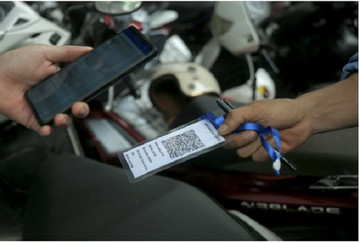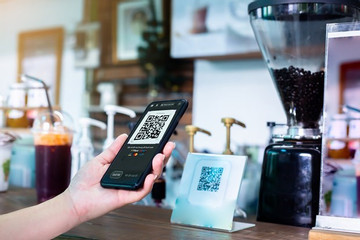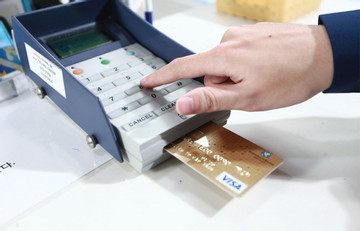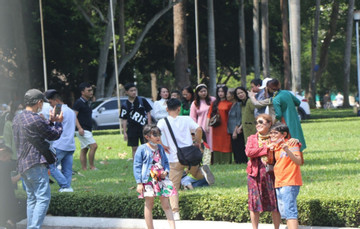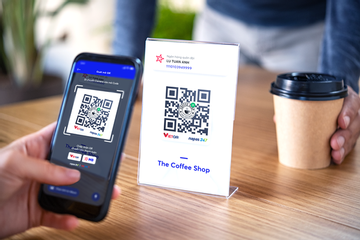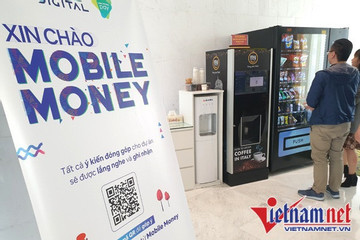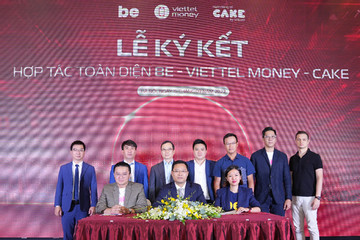- © Copyright of Vietnamnet Global.
- Tel: 024 3772 7988 Fax: (024) 37722734
- Email: [email protected]
cashless payment
Update news cashless payment
Hanoi accelerates cashless payments for parking fees
Hanoi is stepping up efforts to transition to cashless payments for parking fees, with a focus on incentivising residents and businesses while cracking down on non-compliant facilities.
People still reluctant to use non-cash payments because of security fears
Non-cash payments are yet to become popular in Vietnam, including in large cities, because many people are still concerned about security.
HCMC Urban Railway No. 1 partners with Mastercard for smart payment solutions
HCM City Urban Railways No.1 Company Limited (HURC1) and Mastercard Asia/Pacific Pte. Ltd (Mastercard) have officially announced a strategic cooperation agreement to introduce smart payment systems on public transport routes in HCM City.
Cashless payment develops rapidly in VN amid security concerns
At the end of last year, there were 182 million personal payment accounts in Vietnam, with just over 87 per cent of adults owning payment accounts.
Hanoi pilots parking cashless payment
The pilots began on April 15 and in spite of some early problems, drivers have been generally positive.
HCMC airport trials cashless parking with Radio Frequency Identification payment
HCM City’s Tân Sơn Nhất International Airport, the country’s busiest, has adopted a cashless parking payment system to reduce congestion at its entrance and exit.
Banks move to foster cashless payment ahead of Tet
As the traditional Lunar New Year (Tet) festival is just around the corner, commercial banks are offering a wide range of promotional programmes and financial solutions to encourage cashless payment during the peak shopping season.
Domestic offerings plan for cashless era
Vietnam’s foray into a cashless economy is gaining momentum, with domestic card issuances signalling growth and presenting ample opportunities for expansion, particularly in underserved regions.
More Vietnamese travelers switch to cashless payments
The Visa Global Travel Intentions Study (GTI) 2023 has shown that nearly all Vietnamese respondents are inclined to use cashless payment methods while traveling to streamline transactions and enhance their overall travel experience.
Cashless payments in e-commerce to account for 50% by 2025
The Ministry of Industry and Trade (MoIT) has set a target to increase the cashless payment ratio in e-commerce, especially e-payments through payment intermediaries or applications, to 50% by 2025.
'Westerner' street in Da Nang accepts non-cash payments
The shops on the noisy street of An Thuong, called the ‘Westerner street’ in Da Nang, similar to Ta Hien in Hanoi and Bui Vien streets in HCM City, now accept online payments.
Electronic payment continues to flourish in Vietnam
The trend of electronic and non-cash payments in the Vietnamese economy in 2023 continued to record growth of 52.35% in volume over the same period last year.
Momo and ZaloPay dominate cashless payments in Vietnam
MoMo and ZaloPay e-wallets accounted for the highest share of the Vietnamese e-wallet market in the first quarter of this year, with 68% and 53%, respectively, according to a Connected Consumer report.
Average payments via banks reach US$40 billion a day: insider
Cashless payments are developing rapidly in Vietnam, especially after the COVID-19 pandemic, with transactions via banks averaging 40 billion USD per day, according to Pham Anh Tuan, Director of the State Bank of Vietnam (SBV)’s Payment Department.
More Vietnamese consumers go cashless: study
Some 77% of Vietnamese consumers believe they could go cashless for three days, according to a new survey by Visa entitled “Consumer Payment Attitudes Study 2022”.
Series of events scheduled to foster cashless payment in VN
A series of events and activities will be held under the 2023 Cashless Day to promote the adoption of non-cash payment and contribute to achieving the Government’s plans to drive Vietnam towards a cashless society.
Era of digital payments has arrived
As one of the emerging economies in Southeast Asia, Vietnam has potential for e-payments.
Mobile Money needs user-friendly approach
To make Mobile Money non-cash payments popular, it is necessary to create a more favorable environment for users.
Insiders call for revision to draft on e-transactions
Lawmakers are gathering comments on a draft amending the Law on E-Transactions, and insiders comment that the draft needs revisions to be more practical.
Digital Bank Cake & Consumer Platform Be signs cooperation agreement with Viettel Money
Cake by VPBank digital bank and Be the on-demand multi-service consumer platform have inked a comprehensive cooperation agreement with Viettel Money - Viettel Group's digital financial and commercial ecosystem.




